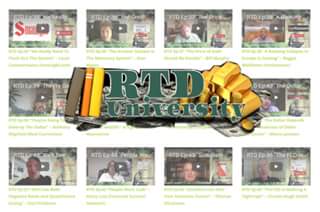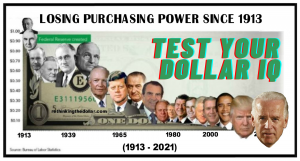There is a time for scientists and carefully vetted facts and a time for men who tell the public that everything is great, nothing to see here. It’s clearly a time for the former and less delusional chatter from the latter.
The latest magical thinking is that if Fed Chairman Jerome Powell and U.S. Treasury Secretary Steve Mnuchin get on a phone call this morning with the other G7 finance ministers and central bank governors, they can seduce or strongarm the group to announce rate cuts or fiscal stimulus to keep stock markets from further steep declines and GDP from contracting. (For how this played out previously, we recommend Nomi Prins’ brilliant book, Collusion: How Central Bankers Rigged the World.)
Unfortunately, the Fed Chair and the U.S. Treasury Secretary are fighting the last war, the financial crisis of 2008, when multiple interest rate cuts were enough to buoy spirits on Wall Street and fiscal spending buoyed economic growth. But interest rates are already hovering at or near historic lows in much of the developed world. Further cuts would likely be akin to “pushing on a string.” (More on that in a moment.)
This is a brand new war where U.S. consumers, who represent more than two-thirds of GDP in the country, are disincentivized to consume because almost every venue of consumption represents a potential threat to their health and the health of their families.
To protect oneself from the coronavirus COVID-19, the World Health Organization recommends “social distancing,” that is, maintaining “at least 1 meter (3 feet) distance between yourself and anyone who is coughing or sneezing.” Other scientists recommend a distance of 6 feet. That’s impossible to do on airplanes, in crowded grocery stores, in movie theaters, on cruise ships, in restaurants, in department stores and many other places where consumers spend their money and help the economy grow.
The Red Cross recommends disinfecting “doorknobs, switches, handles, computers, telephones, bedside tables, bathroom sinks, toilets, counters, toys and other surfaces that are commonly touched around the home or workplace.” That recommendation is because scientists do not yet know just how long the coronavirus lasts on surfaces. That’s another incentive for consumers to avoid places like hotels and resorts.
The only way to restore consumer confidence and re-incentivize the consumer to spend is to get the coronavirus under control. Unless all of the central bankers around the world are replaced with infectious disease scientists, they’re not going to be of much use in this crisis. And yes, it’s a crisis.
Right now, what the central bankers would be doing by cutting interest rates is called “pushing on a string.” You can examine pushing on a string this way: Cut a piece of twine about 6 inches long. Place it on a hard countertop. Use your finger at one end of the string to try to push it in a northerly direction. You will observe it wiggle. You will see it bunch up a little. But you will not see it make any material moves in a northerly direction.
Investopedia defines “pushing on a string” this way: “If the core demand doesn’t exist to induce people to part with their money, it can’t be forced through monetary policy. Trying to do so is like trying to ‘push on a string.’ ”
Core demand on the part of the consumer is further aggravated right now because workers (who are also consumers) correctly fear layoffs or job losses and want to save for that potentiality. Major industries in the U.S. are experiencing revenue and earnings slowdowns because the coronavirus has separated them from their customers. As we reported yesterday, four major U.S. airlines lost $22 billion in market value in the prior seven trading sessions. Retail stores were already experiencing financial difficulties and announcing store closings before the coronavirus hit and the virus outbreak will only exacerbate job losses. Hotels are being hurt not only by vacationers reluctance to travel but by businesses cancelling trips and using teleconferencing instead.
Because of the inexplicable lack of tests kits from the CDC since the first case in the U.S. was diagnosed in January and the CDC’s preposterous restrictions for over a month on when patients could be tested, that agency cannot be trusted to take the lead in this grave risk to national health. Each of the 50 U.S. states and territories need to immediately form their own coronavirus taskforce and hold weekly calls with each other to share vital information about what is working and what is not to contain the virus. That’s called checks and balances and that is how America has survived for 243 years.
BY WALL STREET ON PARADE












0 Comments